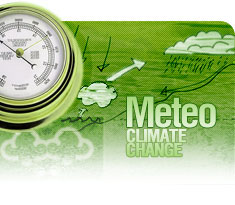U.N. Secretary-General Ban Ki-moon says his top hopes for 2013 are to reach a new agreement on climate change and to urgently end the increasingly deadly and divisive war in Syria.
The U.N. chief told The Associated Press that he's also hoping for progress in getting the global economy humming again, restarting Israeli-Palestinian peace negotiations, promoting political solutions in Mali, Congo and the Central African Republic, and providing energy, food and water to all people.
Ban laid out this ambitious wish list in an interview before heading to the World Economic Forum in Davos this week, saying he plans to take "the uncommon opportunity" of being with some 2,500 government, business and civil society leaders in the Swiss ski resort to exchange frank views on these issues.
"The world is now experiencing unprecedented challenges," Ban said.
"Climate change is fast happening - much, much faster than one would have expected," he said. "Climate and ecosystems are under growing strain."
Ban spoke before President Barack Obama, in his inaugural address Monday, put a similar emphasis on tackling climate change in his second term.
Two-decade-old U.N. climate talks have so-far failed in their goal of reducing the carbon dioxide and other greenhouse gas emissions that a vast majority of scientists says are warming the planet. In December, a U.N. climate conference in Doha, Qatar, agreed to extend the Kyoto Protocol, a treaty that limits the greenhouse gas output of some rich countries, and affirmed a previous decision to adopt a new global climate pact by 2015.
"I will do my best to mobilize the political will and resources so that the member states can agree to a new legally binding global agreement on climate change," Ban said.
Ban urged progress in getting nations and people to use the world's limited resources without waste and in ways to ensure their replacement, so that all people will have enough to eat and drink and there will be electricity for their homes - and have energy to spare to promote economic growth.
"We have to have sustainable development," he said. "That's our number one priority together with climate change."
Momentum for fighting climate change has stalled amid recessions, financial meltdown and government debt crises of the past five years.
"At the same time, we need to see some economic dynamism," Ban said. "The world is still suffering, struggling to overcome its economic crisis."
The forum at Davos, opening Wednesday, focuses this year on how to ensure a more sturdy economic recovery that can withstand the kind of shocks the past few years have wrought - and includes closed-door panels on many of the things worrying Ban. Among the world leaders he may rub elbows with at Davos are Microsoft founder Bill Gates, International Monetary Fund Managing Director Christine Lagarde, German Chancellor Angela Merkel, British Prime Minister David Cameron and South African President Jacob Zuma.
The secretary-general expressed hope that the major powers will be able to revitalize growth, which will help developing countries meet the U.N. Millennium Development Goals adopted by world leaders to combat poverty by the target date of 2015. The goals include cutting extreme poverty by half, ensuring a primary school education for every child, significantly reducing maternal and infant mortality, and halting and reversing the HIV/AIDS pandemic.
On the political front, Ban said he is deeply concerned about the deteriorating situation in Syria where the conflict will soon be entering its third year.
"I believe that world leaders must address this issue with a top priority and a sense of urgency. We cannot go on like this," he said. "More than 60,000 people have been killed, and if the situation continues like this way, we will have to see more and more death, more and more people who are fleeing Syria."
The secretary-general said he is also mobilizing U.N. envoys and other resources to try to make progress on the faltering Mideast peace process; in Mali, where a French-led military operation is fighting Islamist extremists who control the north and have pushed south toward the capital; the deteriorating political situation in Congo where M23 rebels have gained ground in the volatile east; and in the Central African Republic where rebels whose offensive stopped short of the capital recently signed a peace agreement with the president.
Copyright 2013 The Associated Press. All rights reserved. This material may not be published, broadcast, rewritten or redistributed.



 Română
Română English
English


